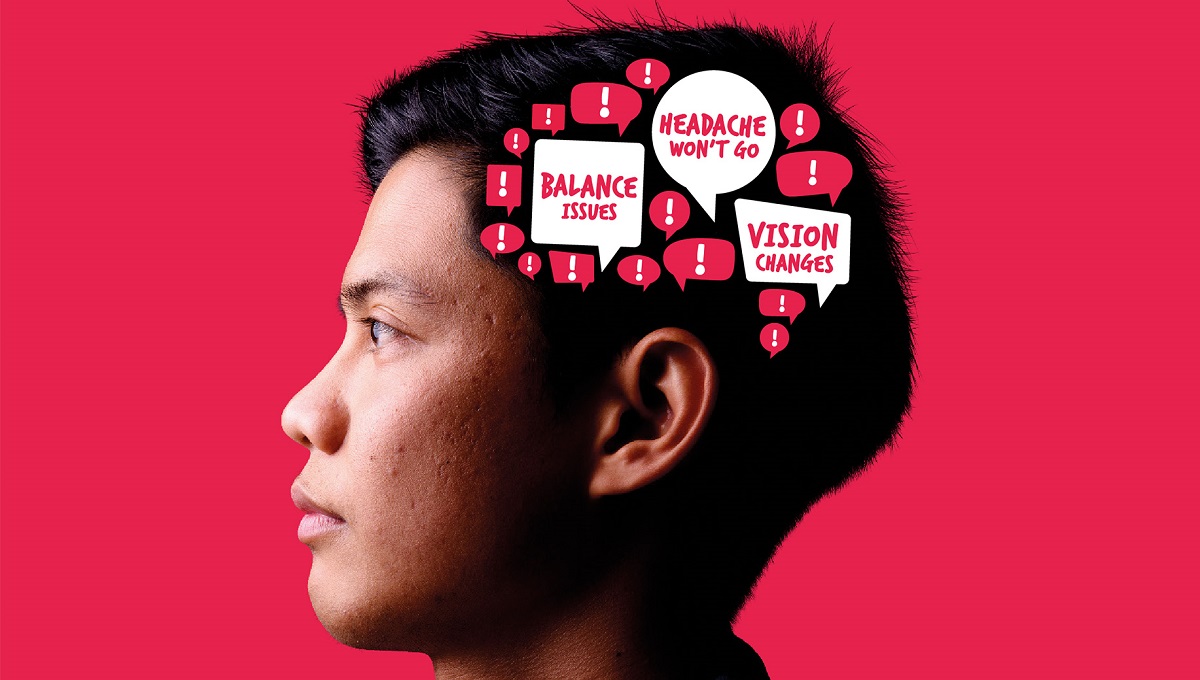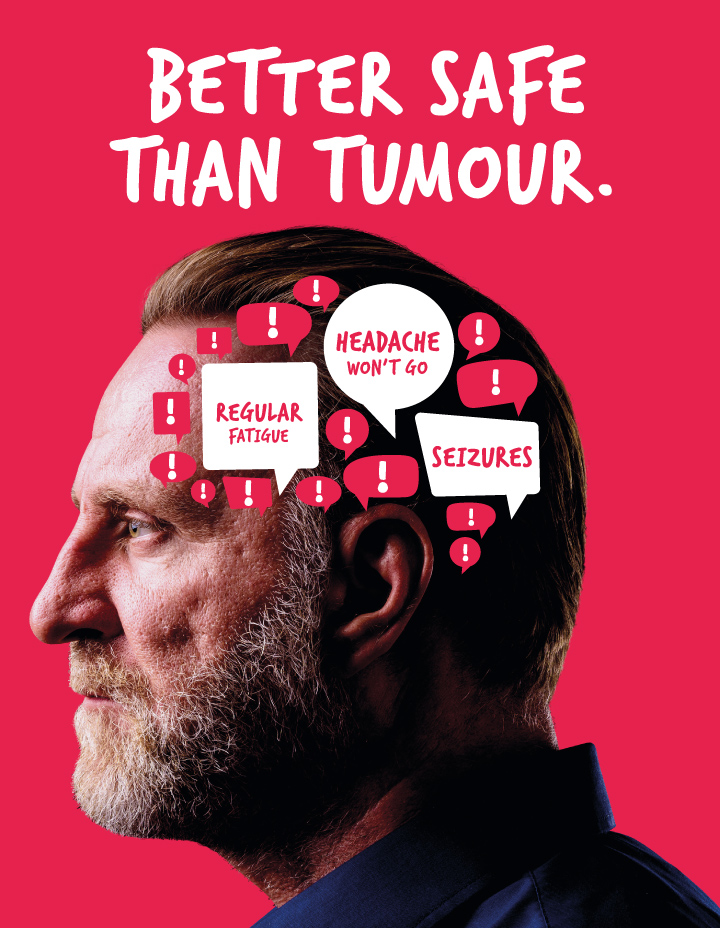Seizures in adults
Seizures are the most common first (onset) symptom that lead to a brain tumour diagnosis in adults. However, brain tumours are rare and seizures can occur for a number of reasons. So if you have a seizure, it does not necessarily mean you have a brain tumour. Sometimes seizures are a one-off.

On this page, we’ll help you understand more about seizures and brain tumours by answering these questions:
- How do I know if a seizure is a symptom of a brain tumour?
- What to do if someone has a seizure, or you think you’ve had one?
- I think I have a brain tumour, what should I do?
Other symptoms
Use our Better Safe Than Tumour symptom checker to check for other brain tumour symptoms.
Talking to your doctor
Learn more about how to approach your GP.
Expert benefits & money advice
Benefits and Money Advice Clinic supported 339 people in the last financial year (22/23), to the tune of £807,938.
How do I know if a seizure is a symptom of a brain tumour?
All seizures should be checked out by your GP or A&E doctors as they could be due to a serious condition including a brain tumour.
You might think of shaking fits when you hear the term, ‘seizure.’ These type of seizures are known as tonic-clonic. During one of these, the person usually loses consciousness and falls down with a stiff body and jerking limbs.
But, this type of seizure is relatively rare when it comes to brain tumours.
There are lots of types of seizure. The type most commonly associated with brain tumours is called a focal (or partial) seizure.
Focal seizures affect only one part of the brain and can affect your movement and/or your level of consciousness or awareness.
The symptoms you have will be different according to where the seizure starts in the brain.
The following are examples of what can happen – you may experience something different.
Symptoms of a focal seizure include:
-
A small part of one side of the brain is affected. You’ll remember the seizure afterwards, even if you can’t describe it. Symptoms include:
- feeling a bit strange or absent (spaced out). You may not even notice this sort of seizure yourself – it may be recognised by others around you
- intense feeling of emotion
- unusual smell or taste
- feeling of ‘déjà vu’ (I’ve been here or done this before) or ‘jamais vu’ (familiar things seem new)
- rising feeling in the stomach, like you may get on a fairground ride
- muscle stiffness or twitching that can spread from the hand or foot and may affect half of the body
- feeling of not being able to speak despite being fully conscious
- numbness or tingling
- burning sensation
- feeling that an arm or leg is bigger or smaller than it is
- visual disturbances, such as coloured or flashing lights
- hallucinations (seeing something that isn’t there).
-
A larger part of one side of the brain is affected. Your consciousness is affected – you may be confused, unaware of what you’re doing, and unlikely to remember what happened afterwards. Symptoms include:
- you may not fully understand people or be able to respond to them, even though you can hear them
- if spoken loudly to, you may think the other person is being aggressive
- wandering around in a confused manner
- language problems, such as comprehension
- making strange or repetitive movements or sounds (called ‘automatisms’)
- visual disturbances, such as coloured or flashing lights
- hallucinations (seeing something that isn’t there).
Some of these may start as a focal aware seizure. They can last from around 15 seconds to 2-3 minutes. After this type you may still feel confused, making it difficult to tell when the seizure has ended. This is called post-ictal confusion. You may also feel tired and need to rest.
What to do if someone has a seizure, or you think you’ve had one?
All seizures should be checked out by your GP or, depending on the severity, an A&E doctor, to find out the underlying cause.
The symptoms listed above are examples of the type of seizures normally associated with brain tumours. However, having these symptoms does not mean you have a brain tumour.
It is possible, though rare, for brain tumours to cause other types of seizure, such as the tonic-clonic (convulsive) type seizure.
If you see someone having a convulsive seizure, it can be scary. But, if you feel comfortable, there are some things you can do to help:
- Don’t move them unless it’s necessary, like if they’re in danger where they are
- Place something soft under their head, if they’re on a hard surface
- If there is tight clothing around their neck, see if you can loosen it
- Once the fit has stopped, gently turn them on their side
- Try to comfort them by talking to them as they come out of the fit
- Write down any details you can remember to help medical staff. These could be the time of the seizure, how long it lasted, the symptoms, if the person said anything beforehand, and things like that.

I think I have a brain tumour, what should I do?
Brain tumours are rare, however, if you’re worried and a symptom persists or if you have more than one symptom of a brain tumour then:
- Talk to your doctor
GP appointments are usually quite short, so make sure you find out how to best prepare for your appointment. - Get an eye test
If your symptoms are limited to changes in vision and/or headaches, get your eyes tested by an optician before seeing your GP. - Go to A&E
If the symptoms are sudden or severe, you should go to your emergency department or call 999.
In this section

Know the Signs and Symptoms
Although brain tumours are rare, if you or a loved one are experiencing two or more of the signs and symptoms it’s important that you speak to your doctor to rule out a brain tumour.

Share your experiences and help create change
By taking part in our Improving Brain Tumour Care surveys and sharing your experiences, you can help us improve treatment and care for everyone affected by a brain tumour.